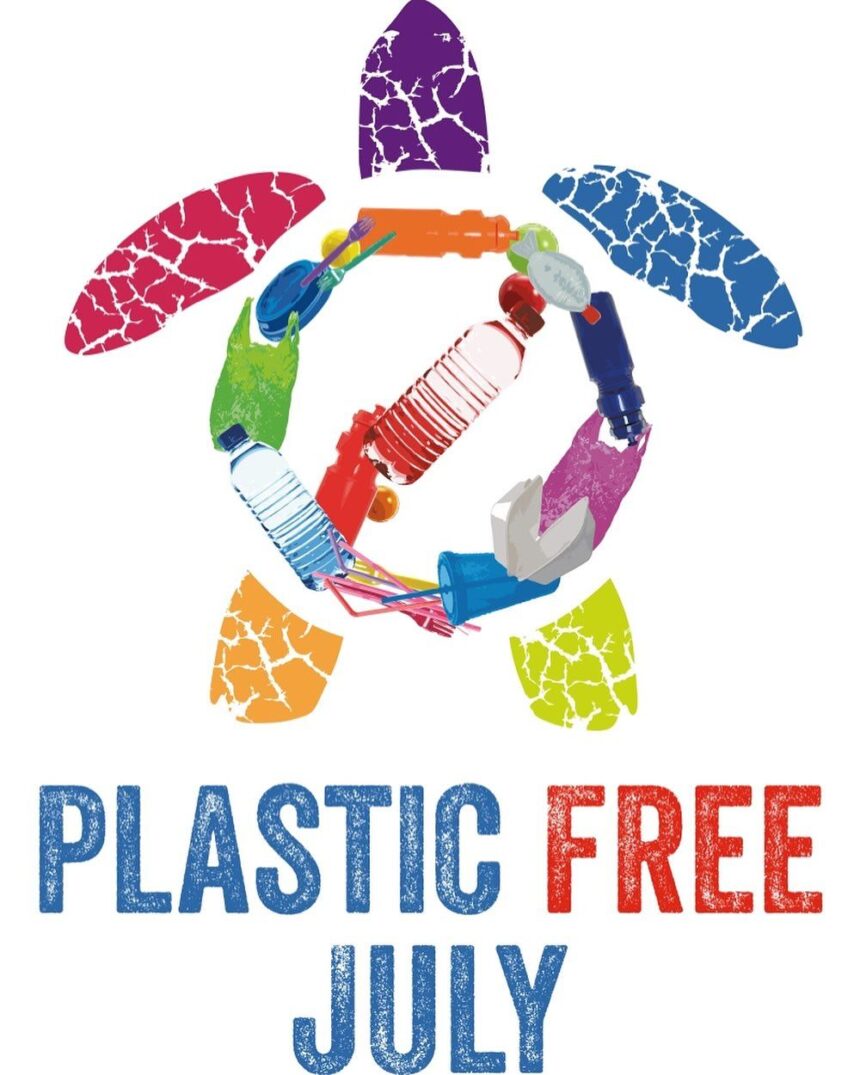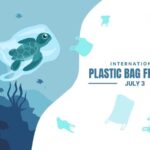♻️ Plastic Free July: History, Facts, Timeline, FAQs, Wishing, Significance, and Its Incredible Impact on Our Lives
Every year, Plastic Free July challenges millions of people around the world to rethink their relationship with plastic. With environmental awareness on the rise and ocean pollution growing at an alarming rate, this global movement offers a simple but transformative message: Refuse single-use plastics and be part of the solution.
- 📚 History of Plastic Free July
- 🕰️ Timeline: The Growth of a Global Movement
- 🧠 9 Eye-Opening Facts About Plastic Pollution
- ❓ FAQs About Plastic Free July
- Q1: What is the goal of Plastic Free July?
- Q2: Do I need to go completely plastic-free?
- Q3: Is this just for individuals?
- Q4: What’s the easiest plastic to give up first?
- Q5: What if I live in a place where alternatives are hard to find?
- 🧭 Significance of Plastic Free July in Our Lives
- 🌱 1. Encourages Responsible Consumption
- 🌊 2. Protects Oceans and Wildlife
- 🧘 3. Promotes a Minimalist, Conscious Lifestyle
- 🧑🏫 4. Inspires Education and Awareness
- 🏘️ 5. Strengthens Community Action
- 💡 Ways to Participate in Plastic Free July
- 📝 Wishing Messages for Plastic Free July
- 📌 Key Observance Details
- 🌟 Impact of Plastic Free July on Daily Life
- 🌍 Why It Matters to Society
- 🧾 Conclusion: Be the Ripple That Starts the Wave 🌊
It’s not just a campaign; it’s a powerful call to action that empowers individuals, families, schools, businesses, and governments to embrace sustainable living.
📚 History of Plastic Free July
Plastic Free July started in 2011 as a small initiative by the Plastic Free Foundation in Western Australia. Created by Rebecca Prince-Ruiz and a local government team, the campaign aimed to raise awareness about the growing problem of plastic pollution and promote alternatives to single-use plastics.
In just over a decade, the movement grew into a global phenomenon. Today, more than 100 million people across 190+ countries participate, making it one of the world’s most influential environmental campaigns.
“We don’t need a handful of people doing zero waste perfectly. We need millions doing it imperfectly.” – Plastic Free July philosophy
🕰️ Timeline: The Growth of a Global Movement
| Year | Milestone |
|---|---|
| 2011 | Launch of Plastic Free July in Perth, Australia |
| 2013 | Reached over 10,000 participants |
| 2016 | Expanded globally with multilingual resources |
| 2018 | Plastic Free July Foundation becomes a registered charity |
| 2020 | Over 250 million plastic items avoided in one month |
| 2022–2024 | Major corporations begin participating, reducing packaging |
| 2025 | Global UN plastic treaty discussions align with Plastic Free goals |
🧠 9 Eye-Opening Facts About Plastic Pollution
Every minute, a garbage truck’s worth of plastic ends up in our oceans.
8 million tons of plastic waste are dumped into oceans annually.
By 2050, there may be more plastic than fish in the oceans (by weight).
Microplastics have been found in human blood and placentas.
Single-use plastics like straws, bags, and bottles make up 40% of ocean waste.
Only 9% of all plastic ever produced has been recycled.
Over 1 million seabirds and 100,000 marine animals die from plastic ingestion yearly.
A plastic bottle can take 450 years to decompose.
Participating in Plastic Free July can cut your household waste by up to 76%.
❓ FAQs About Plastic Free July
Q1: What is the goal of Plastic Free July?
A: To help people reduce single-use plastic consumption and adopt sustainable alternatives during July and beyond.
Q2: Do I need to go completely plastic-free?
A: No! The idea is to make progress, not perfection. Every bit counts.
Q3: Is this just for individuals?
A: Not at all. Schools, businesses, and governments also take part and can adopt plastic-free policies.
Q4: What’s the easiest plastic to give up first?
A: Try starting with plastic bags, water bottles, straws, and takeaway containers.
Q5: What if I live in a place where alternatives are hard to find?
A: Do what you can — even being mindful of your plastic use is a great start.
🧭 Significance of Plastic Free July in Our Lives
Plastic Free July isn’t just about saving sea turtles or skipping a plastic straw. It’s about waking up to the environmental costs of convenience and recognizing our power to create change.
🌱 1. Encourages Responsible Consumption
You begin questioning your everyday habits and asking: Do I really need this wrapped in plastic?
🌊 2. Protects Oceans and Wildlife
Plastic waste harms marine ecosystems, clogs waterways, and destroys habitats. Choosing reusable options helps prevent that.
🧘 3. Promotes a Minimalist, Conscious Lifestyle
You buy less, waste less, and live more intentionally.
🧑🏫 4. Inspires Education and Awareness
Schools and workplaces use this opportunity to educate about pollution and climate change.
🏘️ 5. Strengthens Community Action
From beach cleanups to city-wide bans, Plastic Free July unites communities with a shared mission.
💡 Ways to Participate in Plastic Free July
🌿 Bring your own bag: Say no to plastic shopping bags.
💧 Use a reusable bottle: Avoid single-use water bottles.
🍱 Carry your own lunchbox: Skip takeaway packaging.
☕ Bring a reusable coffee cup: Cafes often offer discounts.
🧼 Switch to bar soap and shampoo: Reduce plastic containers.
🧺 Shop in bulk: Buy food without plastic wrapping.
🧾 Say no to receipts: They’re often coated in plastic.
🍉 Buy fresh produce: Avoid pre-packaged fruits and vegetables.
📝 Wishing Messages for Plastic Free July
🌍 “Happy Plastic Free July! Let’s say NO to plastic and YES to a cleaner planet.”
♻️ “Every action counts! May your month be full of mindful, plastic-free choices.”
💧 “Less plastic, more life. Wishing you a conscious and inspiring Plastic Free July!”
🐢 “Small steps make a big difference. Let’s protect our oceans together.”
🌿 “May your July be as clean as your conscience — go plastic free!”
📌 Key Observance Details
| Element | Description |
|---|---|
| 📅 Duration | Entire month of July |
| 🧍 Who can participate | Anyone: individuals, schools, businesses, governments |
| 🎯 Focus | Reducing single-use plastic |
| 📍 Origin | Australia (2011) |
| 🌍 Reach | 190+ countries and growing |
🌟 Impact of Plastic Free July on Daily Life
Plastic Free July makes a visible, tangible difference in how people shop, eat, and dispose of waste. It also fosters a sense of personal responsibility and global citizenship.
At Home:
Encourages DIY solutions like making toothpaste or cleaning products.
Inspires decluttering plastic packaging in the kitchen and bathroom.
Reduces grocery waste and encourages plant-based eating.
At Work:
Pushes for eco-friendly office supplies.
Motivates “bring your own lunch” culture.
Promotes team plastic-free challenges.
In the Community:
Sparks local beach clean-ups and tree-planting events.
Influences policy discussions on plastic bans and recycling systems.
Builds stronger, greener local movements.
🌍 Why It Matters to Society
✅ Public Health
Plastic waste and microplastics are ending up in our food, water, and even our lungs. Tackling the plastic crisis is now a public health priority.
✅ Environmental Justice
Poorer regions often suffer from the worst plastic pollution, even if they produce less of it. Plastic Free July highlights these inequalities and drives global accountability.
✅ Economic Benefits
Reusing items reduces costs for households. Eco-entrepreneurs are building businesses that support sustainability, creating green jobs.
✅ Policy Pressure
Mass participation in campaigns like Plastic Free July pushes governments to adopt policies like:
Banning plastic bags
Mandating producer responsibility
Promoting refill stations and circular economy practices
🧾 Conclusion: Be the Ripple That Starts the Wave 🌊
Plastic Free July is a movement of hope. In a world where plastic has infiltrated almost every part of life, this month reminds us that we are not powerless. Every plastic bag refused, every reusable bottle carried, every sustainable swap made — it all adds up.
So, let this July be your starting point. Not for perfection, but for progress. Let it inspire you to make conscious choices that serve not just your home, but the entire planet. Because Earth doesn’t need a few heroes doing zero-waste perfectly. It needs all of us doing what we can.








